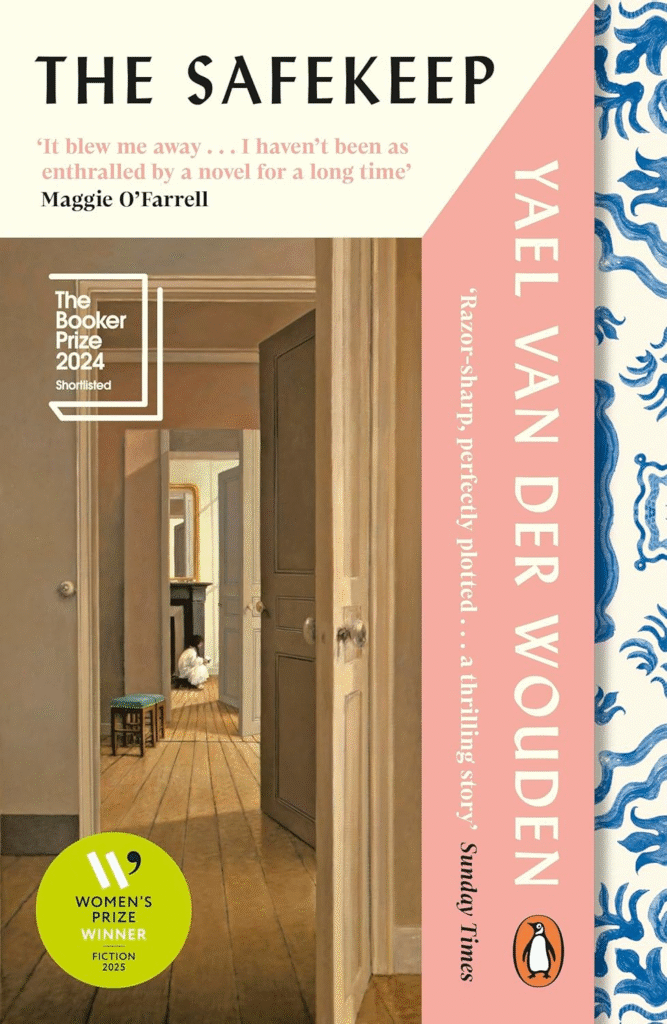Aruna Roy’s The Personal Is Political: An Activist’s Memoir is a powerful and evocative account of her fifty-year journey as a social activist and a deeply introspective narrative of her personal experiences. The memoir links the personal and the political, showcasing Roy’s relentless pursuit of justice and equality for marginalized communities in India. It is a poignant exploration of the intersection between individual lives and larger socio-political movements. The memoir offers insights into sustaining collective action and try to find ways in challenges in social movements. It advocates for governance models rooted in community participation and collective action.
Roy’s memoir reflects her firm dedication to grassroots activism. From her work in the rural villages of Rajasthan to co-founding the Majdoor Kisan Shakti Sangathan (MKSS), she has consistently fought against corruption, inequality, and systemic oppression. Through MKSS, Roy played a pivotal role in the enactment of landmark laws like the Right to Information (RTI), emphasizing participatory democracy and accountability as essential components of governance.
The book also documents her experiences with MKSS’s alternative political model, which avoids the corruption of party politics in favour of people-driven movements. Roy highlights the power of collective action and how rights emerge from the lived experiences of ordinary individuals, reshaping democracy from the ground up.
Availability and Details of Book
The Personal is Political: An Activist’s Memoir by Aruna Roy, published by HarperCollins, is set to be released on 29 May 2024. The memoir chronicles Roy’s transformative journey as a social activist, offering reflections on her personal experiences and the broader political scene in India. With a total of 272 pages, the book provides deep insights into grassroots activism and the fight for justice, emphasizing the intersection of personal beliefs and political actions. The paperback edition is priced at ₹395, while the Kindle version is available for ₹335, making it accessible for a wider audience interested in the intersection of social issues and activism. You can buy The Personal is Political from major online retailers like Amazon, Flipkart, and the HarperCollins website.
About the Author of The Personal is Political
Aruna Roy is a renowned Indian social activist, known for her pivotal contributions to social justice, grassroots activism, and public policy. Born on May 26, 1946, in Chennai, she initially pursued a career in the Indian Administrative Service (IAS) but left it in 1975 to work more closely with marginalized communities. Her commitment to activism led her to co-found the Mazdoor Kisan Shakti Sangathan (MKSS) in 1990, which became instrumental in championing the Right to Information (RTI) movement in India, a landmark effort that culminated in the enactment of the RTI Act in 2005.
As a president of the National Federation of Indian Women, Aruna has been a strong advocate for women’s rights, transparency in governance, and grassroots empowerment. She has also worked extensively to bridge the gap between public policy and rural realities through participatory methods.
Roy’s contributions have been widely recognized, earning her the prestigious Ramon Magsaysay Award for Community Leadership in 2000. She continues to inspire through her work, blending ideology with actionable social change.
Themes Explored in The Personal Is Political
Aruna Roy’s memoir serves as a profound exploration of activism, democracy, and the intersection of personal and political identities. Drawing from the material provided and other analyses of the book, here are six key themes, each with detailed subheadings:
- A Feminist Lens on Democracy and Participation: What sets The Personal Is Political apart is its feminist consciousness. Roy challenges traditional notions of rationality and objectivity, historically associated with male-dominated public spaces. She vividly portrays how women in MKSS and rural communities blend their personal struggles—ranging from wage disputes to gender-based violence—into larger political campaigns. The memoir underscores the interconnectedness of emotional and rational thought, reframing democracy as a participatory and holistic process.
- Connecting the Personal and Political: Roy eloquently argues that the personal and political are inseparable, an idea rooted in the feminist slogan, “The personal is political.” The Personal is Political reveals how everyday actions, from accessing basic resources to fighting oppression, are tied to larger democratic principles. This perspective becomes especially relevant in today’s climate of shrinking democratic spaces, where public action and collective strength remain crucial for holding power accountable.
- The Struggle for Change: Reading Aruna Roy’s The Personal is Political offers profound reflections on the challenging yet rewarding nature of grassroots activism. Roy describes how “the body becomes a battleground for conflicting value systems,” shedding light on the complex interplay of economic philosophies that influence people’s lives. Her poignant insights about the validation of Roop Kanwar’s death, reveal deep socio-cultural issues and the difficulties in understanding human rights and justice within certain contexts.
- A Vulnerable and Inspiring Narrative: The memoir is as much about Roy’s personal growth as it is about her activism. She candidly reflects on the challenges of working in caste-ridden feudal societies, grappling with the privileges of her own caste and class, and balancing family responsibilities with her work. These reflections add depth and vulnerability to the book, making it both relatable and inspiring. “Speaking truth to power is never easy” highlights the immense personal and societal struggles that come with standing up against authority. Roy’s statement captures the harsh reality faced by activists who challenge established systems, emphasizing the risks and sacrifices involved.
Roy movingly observes, “fear is taking over our world,” a truth that resonates deeply in today’s climate of uncertainty and oppression. However, in moments of despair, the saying “har marj ka dawa hai, dard ka hud se gujar jana” offers hope, suggesting that every ailment has a cure, and even pain can eventually lead to growth and transformation. This belief in perseverance and eventual relief provides a sense of optimism in the face of adversity.
- The Intersection of the Personal and Political: In The Personal is Political, Aruna Roy emphasizes the profound connection between personal experiences and political ideologies. Her decision to resign from the Indian Administrative Service (IAS) to prioritize values over career serves as a powerful example of this intersection. Through her narrative, Roy challenges traditional gender roles, illustrating how women’s voices, when empowered, can redefine democratic spaces. She further underscores that the struggles of marginalized communities are not just personal challenges, but political movements in their own right, as their everyday hardships reveal deeper societal injustices.
- Grassroots Activism as a Catalyst for Change: In The Personal is Political, Aruna Roy highlights the power of grassroots activism in driving transformative change. One of the most significant examples is the founding of the Mazdoor Kisan Shakti Sangathan (MKSS), which played a pivotal role in advocating for workers’ and farmers’ rights in India. The MKSS’s work helped lay the foundation for transparency in governance. Roy’s central involvement in the Right to Information (RTI) campaign further exemplifies how grassroots movements can influence national policy, making governance more accountable and accessible to marginalized communities. This demonstrates that real, lasting change often begins from the ground up, driven by those directly affected by social injustice.
- People-Centric Development with Democracy and Accountability: In her memoir, Aruna Roy highlights the critical role of transparency and accountability in democratic governance, emphasizing laws like the Right to Information (RTI) that empower citizens to hold authorities accountable. She also underscores the significance of rights-based legislation such as MGNREGA and the National Food Security Act (NFSA), which have been instrumental in providing a safety net for vulnerable communities. However, Roy also critiques the current challenges to activism, noting the erosion of democratic spaces and the increasing suppression of dissent in contemporary India. These reflections serve as a call to protect the core values of democracy and ensure that activism continues to be a force for change.
- Resilience Amidst Struggles: Aruna Roy’s memoir is a witness to the power of resilience, showcasing inspiring stories of marginalized communities that defy oppression with extraordinary courage. She reflects on the intersections of her privilege and responsibility, candidly discussing moments when her social and economic advantages influenced her activism and interactions. A frequent theme throughout the book is the unshakable hope displayed by the poor—an essential driving force in their fight against systemic injustices, reminding readers of the strength found in optimism amid adversity.
- Moral and Ethical Reflections on Activism: Roy delves into the sacrifices and rewards of dedicating one’s life to social change and she thinks activism as a way of life to live.The memoir examines societal values, questioning the ethics of inequality and systemic corruption. Roy recounts moments where her identity as a privileged individual intersected with her activism, shaping her outlook on power dynamics.
Reviews on the Book
- Amartya Sen & Jean Dreze: “Aruna Roy reflects on a life of deep engagement, weaving the personal and the political. A great inspiration.”
- V (Formerly Eve Ensler): “A brilliant and riveting feminist manifesta for social change.”
- Perumal Murugan: “There are many who speak, but very few who act. This book is a testimonial to the fact that change comes only with action and reinforces the proverb ‘Actions are the best words spoken.'”
Publisher’s View on The Personal Is Political
- Magsaysay Award-winning social activist Aruna Roy’s remarkably forthright memoir is an incredible story of courage and inspiration.
This line highlights Aruna Roy’s significant achievements as a Magsaysay Award-winning activist, underlining her prominence in the field of social justice. The phrase “remarkably forthright memoir” emphasizes the candid and honest nature of her storytelling. The book is described as an “incredible story of courage and inspiration,” suggesting that it not only recounts her journey but also serves to motivate readers by showcasing her bravery and impactful contributions to social and political causes.
- A brave memoir recounting Aruna Roy’s fifty-year-long engagement with public action in India, and her fight to convert her ideological convictions into practice.
This line portrays Aruna Roy’s memoir as a courageous and deeply personal account of her extensive 50-year journey in public service and activism in India. It emphasizes her persistent struggle to bring her strong ideological beliefs to life through real-world action. The use of the word “brave” suggests that her story involves overcoming significant challenges and standing firm in her convictions, making it a powerful narrative of dedication and transformative efforts in the realm of social and political change.
- Aruna Roy’s recollections are marked with stories of resilient individuals and communities and their extraordinary resistance to oppression.
This line highlights how Aruna Roy’s memoir captures the inspiring tales of people and communities who showed immense strength in the face of adversity. Their firm resistance to oppression showcases their courage and determination to fight for justice. These stories reflect the broader themes of resilience and collective empowerment that are central to her work and philosophy.
Final Thoughts
Aruna Roy’s The Personal Is Political is more than a memoir it is a manifesto for activism, a guide for future generations, and a powerful reminder of the role individuals can play in shaping society. Through her candid reflections and incisive critiques, Roy bridges the gap between the personal and the political, offering a blueprint for transformative change.
Aruna Roy’s The Personal Is Political is a must-read for anyone interested in understanding the intricate connections between personal experiences and political action. It serves as both a testament to the transformative power of grassroots movements and a call to action for readers to engage with democracy in meaningful ways. With its blend of historical insights, personal anecdotes, and a vision for inclusive governance, this memoir is a powerful manifesto for change.




